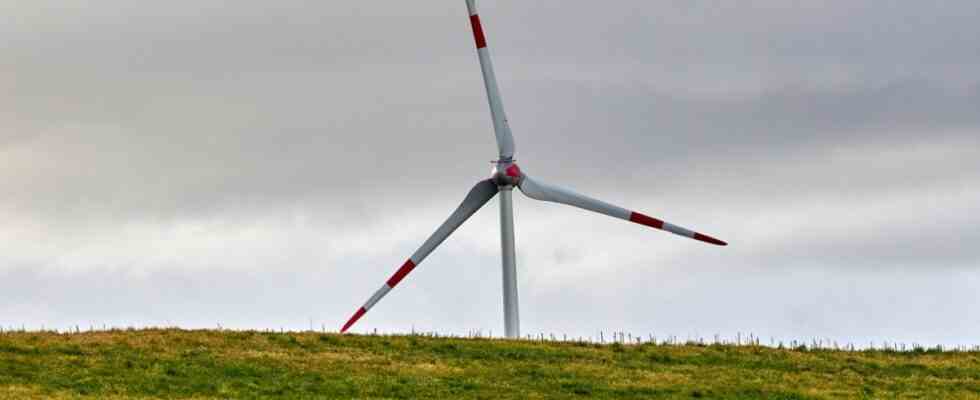After a controversial discussion lasting almost four and a half hours, the majority of the CSU parliamentary group voted in favor of relaxing the 10-hour rule for wind turbines in Bavaria. In a parliamentary group meeting, the MPs agreed, among other things, that in future a minimum distance of 1000 meters should apply between wind turbines and the nearest residential buildings in certain areas. Prime Minister Markus Söder (CSU) and parliamentary group leader Thomas Kreuzer announced this in a press conference on Wednesday evening. Söder had already made the 1000 meter proposal in a government statement in the summer of 2021. Now he spoke of a “big step forward” in wind energy in Bavaria. A total of up to 800 wind turbines are possible, said Söder, without naming a period.
So far, according to the 10-H rule, every wind turbine must be at a distance from the nearest house that corresponds to ten times its height – which blocks the expansion of wind energy in Bavaria. Since modern systems are around 200 meters high today, the intended relaxation would roughly halve the current minimum distance. According to the CSU, this should only apply in special areas that Söder brought into play a long time ago: in state and private forests, on military training areas and in pre-polluted areas. For example, along “federal motorways, federal roads with four or more lanes and main railway lines,” as the paper says, which the CSU parliamentary group passed. Companies should also be made easier to build their own wind turbines and old wind turbines should be modernized and made more efficient.
Habeck would like to overturn the 10-H rule
This should also determine the content of the Bavarian “wind plan”, which Söder promised the Federal Minister of Economics Robert Habeck (Greens). Habeck would like to overturn the 10-hour distance rule in order to implement the plan for his climate-friendly energy policy. With the compromise proposals that the CSU parliamentary group has now agreed on, Söder wants to prevent this. On Wednesday he said that, according to the parliamentary group’s decision, almost two percent of the country’s area could be made available for wind turbines. However, he confirmed that the Free State would adhere to the 10-H rule outside the special areas and again called for the phase-out of nuclear power to be postponed. He also asked Economics Minister Hubert Aiwanger to speed up the expansion of the power lines.
Aiwanger’s Free Voters, coalition partner of the CSU, have already signaled that they support the easing of wind energy. “I assume that the federal government will accept Bavaria’s proposal,” said Aiwanger, who also attended the CSU parliamentary group meeting on Wednesday. In his own camp, on the other hand, Söder had to fight for the easing. Although he has apparently been able to assert himself against some opponents of wind power in his parliamentary group, the wind energy concept of the CSU falls short of the expectations of nature and climate protectionists.
Sharp criticism came from the wind industry and the Greens. The head of the wind power association BWE, Bernd Wust, spoke of a “pseudo-planning”. The state government is looking for abstract areas. She got “completely tangled up in a construct of exceptions and restrictions that is becoming more and more absurd and can no longer be understood,” said Wust. “This serves neither the acceptance of wind energy nor climate protection.” Wust is a lawyer and as such a specialist in wind and solar parks. He is convinced that the new decision will trigger a plethora of new legal disputes.
“The tinkering with 10H continues,” said Martin Stümpfig, member of the Greens and deputy head of the economic committee in the state parliament. “The easing that has now been announced does not turn the wind power prevention rule into a wind power expansion turbo.” But Bavaria needs that, what is needed is a real spirit of optimism. From Stümpfig’s point of view, the basis for a real expansion of wind power is the binding designation of two percent of the suitable state area for wind power in the regional planning associations, as required by the federal government. Without them, the expansion would continue. “Some plants will then be built along the highway, some in the existing priority areas, some in the forests,” said Stümpfig. “But that’s not enough and we lose valuable years again.” The consequence from the point of view of the Green politician: “Bavaria will continue to miss its climate goals with a bang. In addition, we remain dependent on fossil oil and gas from rogue states.”

